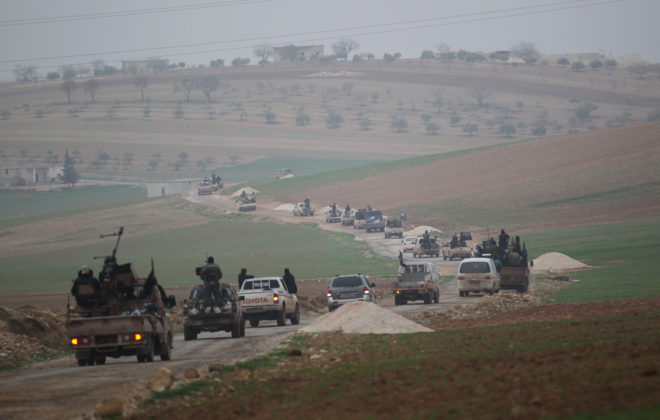Despite a number of statements being issued about southern Syria by the interested parties, it is still unclear as to what the probable scenario will be. This is especially true given the omission of the Syrian armed opposition groups in the area from the Israeli-Russian arrangements which are being discussed. These groups are estimated to include tens of thousands of fighters and are armed with heavy equipment, in addition to being spread over a wide and open area — that is, not under siege by regime forces, unlike other areas which have recently fallen to the regime.
Russia has officially confirmed that there is a deal with Israel regarding southern Syria, via its permanent representative to the United Nations, Vasily Nebenzya, saying that a deal was reached with Iran and Israel regarding the pullout of Iranian forces from southwest Syria.
According to Israeli media reports, Israel has agreed to the deployment of regime forces up to the border of southern Syria, if Iranian units withdraw. This came at the same time as a visit to Russia by the Israeli Defense Minister, Avigdor Lieberman, during which he discussed these developments with his Russian counterpart, Sergei Shoygu, while consultations have also been carried out over the phone between Russian President Vladimir Putin and Israeli Prime Minister Benjamin Netanyahu.
Sources said that the Russian proposal for the southern area included the departure, to an as yet unknown location, of Hayyat Tahrir al-Sham and Jaish Khalid, which has pledged allegiance to the Islamic State (ISIS), in addition to those who reject the deal. The involved factions would be in two main structures, one in Daraa’s eastern area, and the other in the western area, whereby they will work alongside Russian police under the name “local forces”, while the Russians agree that regime forces will not enter into the cities and towns, while state institutions will return to work and will “raise the Syrian flag.” Regime forces will also deploy on the borders with the occupied Syrian Golan Heights and Jordan, in addition to opening the Nasib Border Crossing with Jordan. Iranian forces and militias under their authority and Hezbollah will leave the area. These forces are currently concentrated in the Daraa-Quneitra-southwest Damascus countryside triangle, known as the “triangle of death.” There are reports that thousands of non-Syrian fighters, carrying regime IDs, have been deployed in southern Syria.
It also appears there have been efforts by the regime and Iran to downplay the significance of the withdrawal of Iranian forces and militias from the south with the Syrian Foreign Minister, Walid Muallem, saying that militarily there is no Iranian presence on the ground and “there are only advisers who are working alongside Syrian forces.” He described the Iranian presence in Syria as legal, unlike the Turkish, American and French presence.
Regarding the statements surrounding the deal for southern Syrian, Muallem said: “Don’t believe the statements about the agreement for southern Syria, if the American forces have not withdrawn from the al-Tanf area.”
The Secretary of the Iranian National Security Council, Ali Shamkhani, denied the presence of any Iranian advisers in southern Syria or that they are carrying out any role there, but he did say that there are Iranian advisers across Syria in general, and that they will continue to give support to regime forces.
For his part, an Israeli official denied that his government was reaching understandings with Russia about the Iranian presence in Syria. Speaking to an Israeli newspaper, this unnamed official added that Netanyahu had stressed during his discussions with the American Secretary of State Mike Pompeo the importance of a full withdrawal by Iranian forces from Syria.
The Israeli official stressed that Netanyahu had said that Israel will reserve the right to act freely against Iranian attempts to entrench a presence in Syrian territory.
This article was translated and edited by The Syrian Observer. Responsibility for the information and views set out in this article lies entirely with the author.


